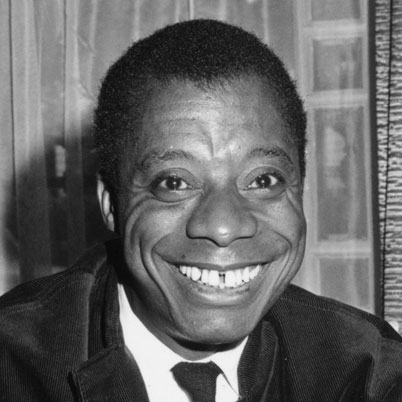My experience as a high school student of English often consisted of being given complicated material, being told it was Very Important or A Part of The Canon, and muddling through it as best I could, with some vague notion that this experience would mean something later.
On the whole, I find this approach silly. It was too much of the now-you-will-sound-cultured-at-cocktail-parties mindset.
However, there were a bunch a moments when, upon entering college or “real life,” that the lightbulb went off in my brain: so that’s what they were talking about. Tough literature seemed less daunting after having slogged through “Absalom, Absalom!” my senior year of high school.
It is with this in mind that I occasionally throw my students something that will take a maximum amount of effort to unpack. For example, take the very first paragraph of James Baldwin’s “If Black English Isn’t a Language, Then Tell Me, What Is?”
The argument concerning the use, or the status, or the reality, of black English is rooted in American history and has absolutely nothing to do with the question the argument supposes itself to be posing. The argument has nothing to do with language itself but with the role of language. Language, incontestably, reveals the speaker. Language, also, far more dubiously, is meant to define the other–and, in this case, the other is refusing to be defined by a language that has never been able to recognize him.
We read it twice. We talk about what the original argument is, and theorize as to what Baldwin’s trouble with it must be. We define “incontestably” and “dubiously,” We discuss the academic meaning of “the other.” We talk about who that other is, and what reasons “he” might have for refusing to be defined by it. This takes a while. It’s not easy work.
As the reading continues, we pull from African American History class in 9th grade, we pull from our geographical knowledge (quick, who knows where Martinique is? Or the where the Basque live?) I ask them if they know why Malcolm Little chose “X” as his last name. Somebody explains that. We get to this line:
To open your mouth in England is (if I may use black English) to “put your business in the street”: You have confessed your parents, your youth, your school, your salary, your self-esteem, and, alas, your future.
Who knows something about British Accents? Who talked to the exchange students from Liverpool when they were here last year? Next time, ask them about how they sound different from Londoners; you’ll get an earful. Maybe we put “ask” on the board, and see whether people pronounce it “ask” or “axe.” We talk about that, too.
We hack our way through the whole thing, and by the end we’ve gone in a dozen different interesting directions regarding language, identity, and power. Great set-up for a benchmark essay. Throwing students off the deep end is okay, as long as you jump in with them.
And then, to cap off the class, I show them the goofiest photo of James Baldwin I can find.
